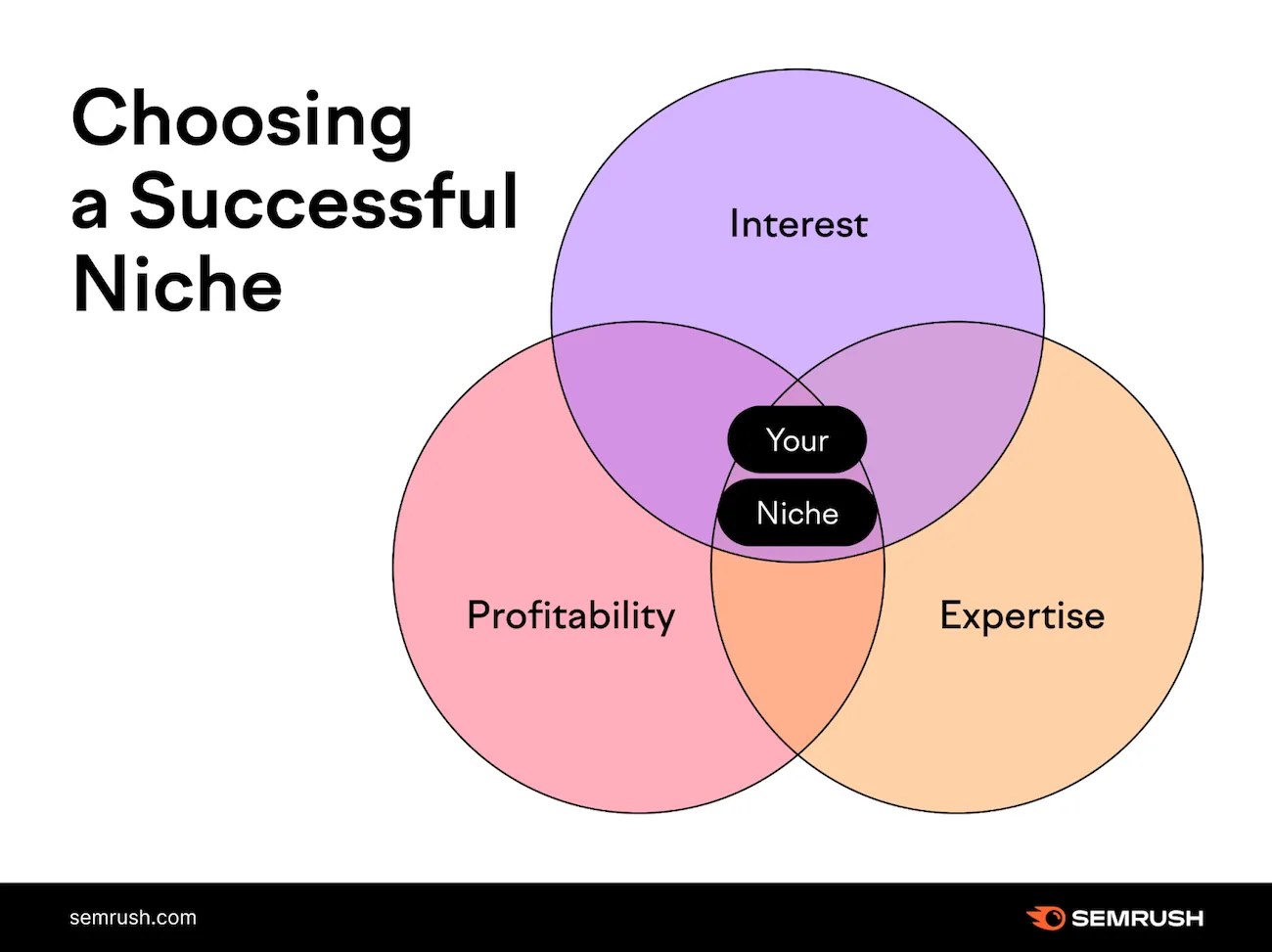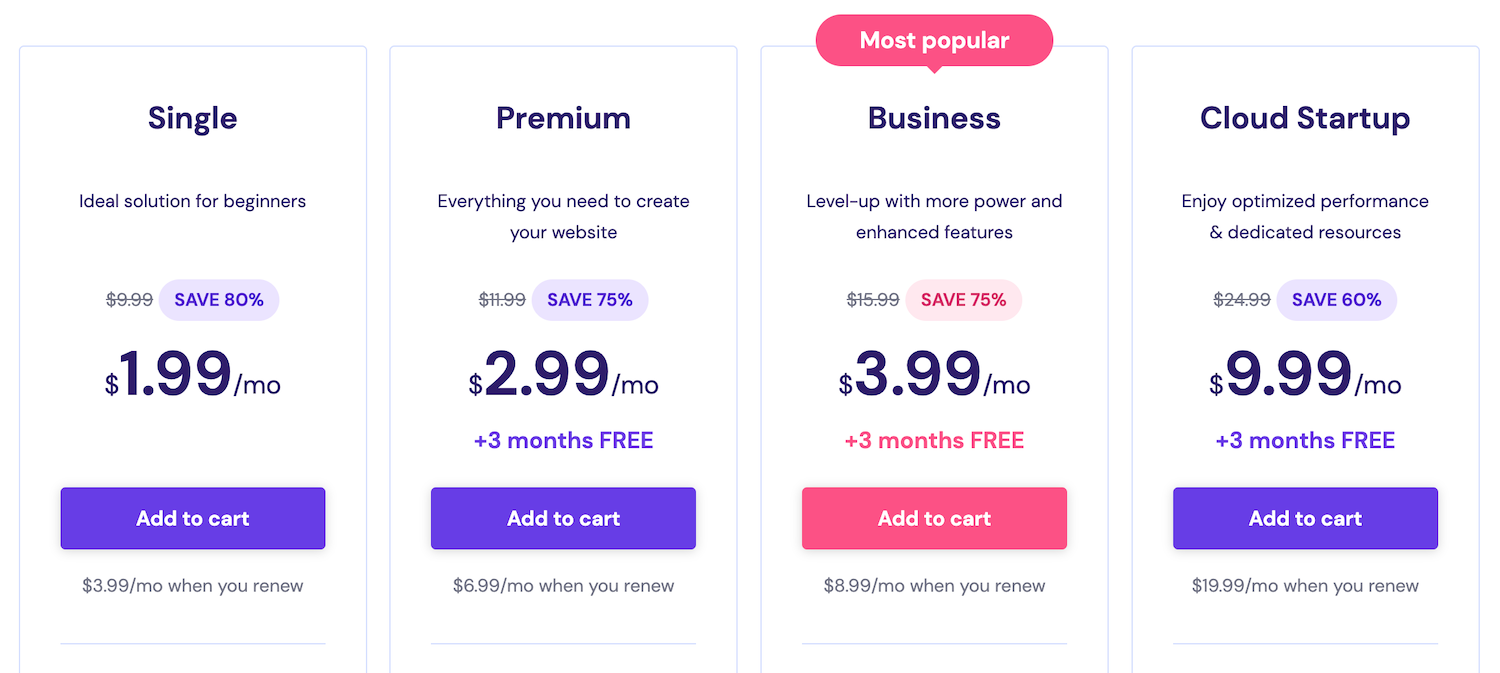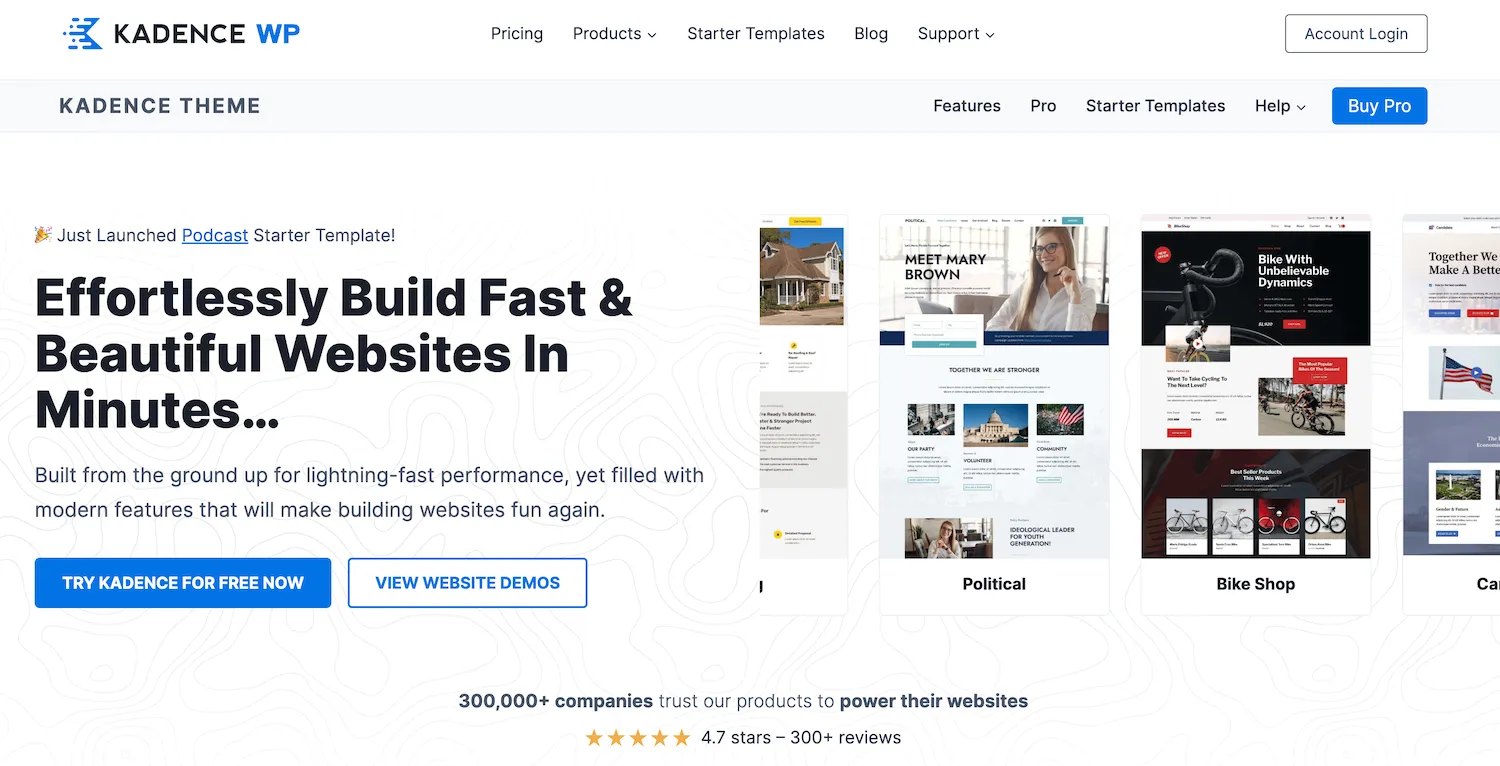If you’re new to the world of blogging or looking to improve your skills, you’ve come to the right place.
In this guide, I will give you all the information you need to start your amateur blogging.
I’ll show you how to start a blog and give you useful advice for your first few months of writing. By the end of this guide, you’ll have the knowledge and confidence to create engaging content and build a loyal audience.
Who knows, you might end up being a pro blogger doing professional blogging.
So, let’s dive in!
Why Amateur Blogging is Worth It

Amateur blogging is a fulfilling and rewarding hobby that is worth investing your time and effort in. As an amateur blogger, you can share your thoughts, experiences, and expertise with others creatively and engagingly.
One of the most significant benefits of amateur blogging is the freedom it provides. You have complete control over the content you create, the tone you set, and the direction you take your blog in.
Moreover, amateur blogging is a great way to develop new skills and improve existing ones. Writing is a crucial component of blogging, and as you write more blog posts, you’ll find that your writing skills automatically improve.
Another great benefit of amateur blogging is the potential to connect with like-minded individuals. Whether you’re interested in fashion, food, or travel, there is a blogging community out there that shares your passions.
Finally, amateur blogging can lead to a range of potential rewards, both personal and professional. For some, it may be the satisfaction of seeing their blog grow and develop over time. For others, it may be the opportunity to monetize their blog and generate income from their passion.
Getting Started with Amateur Blogging
Are you ready to start blogging?

The first thing you’ll need to do is choose a niche for your blog. Think about your interests and areas of expertise. Do you love to cook? Are you an expert in parenting? Do you have a passion for travel?
Your blog should focus on something that you’re knowledgeable and passionate about. This will help you write content that your readers will find interesting and relevant.
Once you’ve chosen your niche, it’s time to select a blogging platform. There are many options out there, but I recommend using WordPress. It’s user-friendly customizable, and allows for easy integration of plugins to enhance your blog’s functionality.
Now that you have your niche and platform, it’s time to set up your website. You’ll need to purchase a domain name and hosting plan. A domain name is the address of your website (e.g., www.myblog.com), and the hosting provider is the service that makes your website appear on the internet.
Hostinger web hosting provider offers 4 plans:
- Single: $1.99/month
- Premium: $2.99/month
- Business: $3.99/month + 3 months FREE
- Cloud Startup: $9.99/month + 3 months FREE
You can start with either a Single or Premium plan, as they offer a really good deal.

Choosing Your Theme
Once you have your domain and hosting set up, it’s time to install WordPress and select a theme for your blog. You can go to Appearances > Themes > Add New.
The theme and plugins you choose for your amateur blog can greatly impact its overall look and functionality. Your choice between a free or premium theme and the plugins you use can greatly impact your blog.
There are a lot of free themes to choose from, or you can pay for a premium theme with more customization choices and special features.
Pro tip: While free themes are a great choice for beginner bloggers, investing in a premium theme can provide added benefits such as better site speed, improved SEO, and increased customization options.

I would recommend a theme like Kadence WP or Astra. These are some of the best starter themes for blogs. You can read more in my full Kadence theme review.
With your theme selected, it’s time to start creating content. Your first blog post should introduce yourself and your new blog to your readers. Tell them what your blog is about and what they can expect to see in future posts. Remember to keep your tone friendly and conversational.
Essential Plugins
Using plugins can greatly enhance the functionality of your blog. Here are some essential plugins to consider:
- Rank Math SEO: This plugin helps optimize your blog’s content for SEO and provides suggestions for improving your site’s ranking in Google search results.
- Wordfence: A great WP security plugin that effectively enhances your website’s security and keeps unwanted intruders at bay.
- WPForms: This tool lets you make custom contact forms for your blog, which makes it easier for people to get in touch with you.
- MonsterInsights: This plugin helps you track your site’s analytics and provides valuable insights into your audience’s behavior.
While there are countless plugins to choose from, be wary of using too many, as they can slow down your site’s speed and affect its performance.
Pro tip: Before installing any new plugins, make sure to research them thoroughly and read reviews to ensure they are reliable and compatible with your WordPress site.
By carefully selecting a theme and utilizing essential plugins, you can create a visually appealing and highly functional amateur blog that will attract and retain readers.
Essential Tips for Amateur Bloggers

As an amateur blogger, there are a few essential tips and strategies you should keep in mind to become a successful blogger. Here are some vital pointers to set yourself up for success in the competitive world of amateur blogging.
Understand Your Target Audience
One of the critical aspects of successful blogging is knowing your target audience. To create content that connects with them, you need to know their wants, needs, and pain points.
Do a lot of research to find out about the demographics, hobbies, and online habits of your audience. This knowledge can help you make sure that your content attracts and keeps the attention of your ideal readers.
Focus on Quality Content
Your content is the centerpiece of your blog. So, you should focus on making material that is of high quality, interesting, and useful.
Make sure that your blog posts are well-written, free of mistakes, and useful to the people who read them. For your blog posts to be more approachable, write them in a friendly, conversational style.
Be Consistent
Consistency is essential to build a loyal audience base. Make sure you have a regular posting schedule to keep your readers engaged and up-to-date with your content.
Plan your blog posts ahead of time with a writing calendar. This way, you won’t have to rush to write a post at the last minute.
Engage with Your Audience
Build a strong relationship with your viewers by talking to them often. Quickly answer comments and messages, request feedback, and get readers to connect with you.
This practice can help you create a thriving online community around your blog, leading to increased traffic and engagement.
Optimize Your Blog for SEO
Search engine optimization (SEO) is essential to get free traffic to your blog. Search engines will find your blog posts and website more easily if you make them easy for them to crawl and rank.
Here are some essential tips for optimizing your amateur blog for SEO:
Choose the Right Blogging Platform
The platform you choose for your blog can impact its SEO performance. There are a lot of free blogging platforms. WordPress is a popular choice, as it offers built-in SEO features and plugins to enhance your blog’s search engine visibility.
Use Relevant Keywords
Do a keyword study to find out what words and phrases people in your target audience are looking for. These keywords are easy to use in blog posts and content, which can help your site rank higher in search results.
Optimize Your Blog Posts
When writing blog posts, make sure to use descriptive and relevant titles, headers, and meta descriptions. Also, include internal and external links to related content to improve your blog’s overall relevance and authority.
Make Your Site Mobile-Friendly
As more and more users access the internet through their mobile devices, search engines prioritize mobile-friendly websites. Make sure your amateur blog is optimized for mobile users by using responsive design and fast-loading pages.
Install SEO Plugins
You can make your blog posts and website search engine friendly with plugins like Rank Math SEO. These plugins provide suggestions for improving your content and handling technical SEO elements like meta tags and sitemaps.
By following these SEO tips for amateur bloggers, you can enhance your blog’s visibility, attract more traffic, and ultimately grow your audience.
Monetizing Your Amateur Blog

While amateur blogging is primarily a passion project, it’s possible to earn some money from blogging.
Monetizing your blog can provide a source of income, and it can also be a way to justify the time and effort you put into it. Here are some strategies you can use to start making money from your blog:
Affiliate marketing
When you promote a product or service through an affiliate link, you get paid a fee for any sales that come from that link.
If you join an affiliate program, you can start promoting goods that are related to your niche and get paid for every sale you bring in.
If you want to make money from affiliate marketing, it’s important to only promote products you genuinely support and that are a good fit for your audience.
Sponsored content
When you do sponsored content, you work with brands to make material that promotes their goods or services. This can be done through paid blog posts, posts on social media, or reviews of products.
To attract sponsored content opportunities, you’ll need to establish a strong online presence and demonstrate your expertise and authority in your niche.
Selling your own products or services
If you have a skill or expertise in a particular area, you can create and sell your own products or services.
This can include digital products like ebooks or courses, physical products like merchandise or handmade goods, or services like coaching or consulting.
Selling your own products allows you to retain full control over your income and can be a great way to showcase your unique skills and knowledge.
Remember, while monetizing your blog can be a worthwhile pursuit, it’s important to stay true to your passions and interests.
Don’t sacrifice your authenticity in pursuit of money, and always focus on providing value to your audience.
Common Mistakes to Avoid in Amateur Blogging
As an amateur blogger, it’s essential to avoid the common mistakes many beginners make. Here are some of the mistakes I see amateur bloggers making and some tips on how to avoid them:
Remember, your blog represents you and your brand. Make sure your content is high quality, unique and engaging. Blogging takes effort, but the results can be rewarding if you avoid common
Poor Formatting
One of the most significant mistakes amateur bloggers make is poor formatting of their blog posts. Long paragraphs without subheadings and small font sizes can make your blog difficult to read and turn off readers.
My tip is to break up your text into smaller, easier-to-read paragraphs and use subheadings to separate different sections of your post. You can also use bullet points or numbered lists to make your content more visually appealing.
Lack of Originality
Another common mistake I see is a lack of originality in amateur blog posts. It’s easy to fall into the trap of replicating existing content, but this approach won’t set your blog apart from the rest.
To avoid this mistake, do thorough research before writing your post and provide your own unique perspective on the topic. Adding personal anecdotes and experiences can also make your content more engaging and relatable.
Inconsistent Posting Schedule
One mistake that can hurt your blog’s growth is an inconsistent posting schedule. It’s important to post regularly to keep your readers engaged and to increase your blog’s visibility. Set a reasonable time to post and stick to it.
My advice is to start with one or two blog posts per week and gradually increase that frequency as you gain more experience and time.
Overuse of Affiliate Links
While monetizing your blog is a great way to earn income, be cautious about overusing affiliate links.
If you put too many unrelated links in your posts or too many links in general, your readers may feel like they’re being sold to instead of being informed.
My recommendation is to only include affiliate links that are relevant and valuable to your readers. Always be honest about your affiliate links and how you’re connected to the goods or services you’re promoting.
Neglecting Proper Keyword Research
One of the most critical components of amateur blogging is proper keyword research. Neglecting this step can severely impact your blog’s visibility and hurt your chances of attracting organic traffic.
Do a lot of study on keywords to find high-ranking ones that are relevant to your niche. Use these keywords in a smart way throughout your blog post, in the title, the subheadings, and the main text.
I personally used Semrush to help me with keyword research. Read my Semrush review to learn more about this SEO tool.
Building a Successful Amateur Blogging Business
If you have become an amateur blogger and want to take it to the next level, there are steps you can take to turn it into a successful business venture.
Making a good content strategy that fits the wants and interests of your audience is one of the most important things you can do. Find out what are they looking for, and use your blog posts and other material to help them.
It’s also crucial to establish a strong online presence by building a recognizable brand. Choose a unique name and domain for your blog, and create a professional logo and website design that reflects your brand’s values and voice.
Partnering with brands is another way to monetize your blog and turn it into a profitable business. Reach out to brands and companies in your field and offer to work with them or write sponsored content.
As your blog grows, you may also consider creating your own products or services that resonate with your audience.
Remember that it takes time and work to become a great blogger. To be successful in the long run, you need to make high-quality content and build a loyal following consistently.
With dedication and persistence, you can turn your amateur blogging hobby into a thriving business.
By following these SEO tips for amateur bloggers, you can enhance your blog’s visibility, attract more traffic, and ultimately grow your audience.
The Importance of Networking in Amateur Blogging
As an amateur blogger, networking is essential to your growth and success in the industry. Whether you’re just starting out or looking to take your blog to the next level, building connections with fellow bloggers and industry professionals can open doors and create opportunities you never knew existed.
Pro bloggers can offer valuable insights and advice based on their own experiences, while new bloggers can offer fresh perspectives and ideas.
Networking with a variety of individuals can help you broaden your knowledge and skill set, improve your writing and content creation, and even lead to collaborations or partnerships that can benefit your blog.
To start building your network, consider attending blogger events or conferences, joining online communities or social media groups for bloggers, and reaching out to fellow bloggers in your niche to start a conversation.
Guest posting on their blog or collaborating on a project to establish a relationship. The more you connect with others in the industry, the more opportunities you’ll have to learn, grow, and succeed as an amateur blogger.
Conclusion
I hope this guide to amateur blogging helped you to start your amateur blogging journey.
Remember, success in blogging takes time, dedication, and persistence. You can achieve your goals and build a fulfilling amateur blogging career.
With hard work and a passion for writing and sharing your ideas, you can be a successful amateur blogger. Good luck!
If you’re new to the world of blogging or looking to improve your skills, you’ve come to the right place.
In this guide, I will give you all the information you need to start your amateur blogging.
I’ll show you how to start a blog and give you useful advice for your first few months of writing. By the end of this guide, you’ll have the knowledge and confidence to create engaging content and build a loyal audience.
Who knows, you might end up being a pro blogger doing professional blogging.
So, let’s dive in!
Why Amateur Blogging is Worth It

Amateur blogging is a fulfilling and rewarding hobby that is worth investing your time and effort in. As an amateur blogger, you can share your thoughts, experiences, and expertise with others creatively and engagingly.
One of the most significant benefits of amateur blogging is the freedom it provides. You have complete control over the content you create, the tone you set, and the direction you take your blog in.
Moreover, amateur blogging is a great way to develop new skills and improve existing ones. Writing is a crucial component of blogging, and as you write more blog posts, you’ll find that your writing skills automatically improve.
Another great benefit of amateur blogging is the potential to connect with like-minded individuals. Whether you’re interested in fashion, food, or travel, there is a blogging community out there that shares your passions.
Finally, amateur blogging can lead to a range of potential rewards, both personal and professional. For some, it may be the satisfaction of seeing their blog grow and develop over time. For others, it may be the opportunity to monetize their blog and generate income from their passion.
Getting Started with Amateur Blogging
Are you ready to start blogging?

The first thing you’ll need to do is choose a niche for your blog. Think about your interests and areas of expertise. Do you love to cook? Are you an expert in parenting? Do you have a passion for travel?
Your blog should focus on something that you’re knowledgeable and passionate about. This will help you write content that your readers will find interesting and relevant.
Once you’ve chosen your niche, it’s time to select a blogging platform. There are many options out there, but I recommend using WordPress. It’s user-friendly customizable, and allows for easy integration of plugins to enhance your blog’s functionality.
Now that you have your niche and platform, it’s time to set up your website. You’ll need to purchase a domain name and hosting plan. A domain name is the address of your website (e.g., www.myblog.com), and the hosting provider is the service that makes your website appear on the internet.
Hostinger web hosting provider offers 4 plans:
- Single: $1.99/month
- Premium: $2.99/month
- Business: $3.99/month + 3 months FREE
- Cloud Startup: $9.99/month + 3 months FREE
You can start with either a Single or Premium plan, as they offer a really good deal.

Choosing Your Theme
Once you have your domain and hosting set up, it’s time to install WordPress and select a theme for your blog. You can go to Appearances > Themes > Add New.
The theme and plugins you choose for your amateur blog can greatly impact its overall look and functionality. Your choice between a free or premium theme and the plugins you use can greatly impact your blog.
There are a lot of free themes to choose from, or you can pay for a premium theme with more customization choices and special features.
Pro tip: While free themes are a great choice for beginner bloggers, investing in a premium theme can provide added benefits such as better site speed, improved SEO, and increased customization options.

I would recommend a theme like Kadence WP or Astra. These are some of the best starter themes for blogs. You can read more in my full Kadence theme review.
With your theme selected, it’s time to start creating content. Your first blog post should introduce yourself and your new blog to your readers. Tell them what your blog is about and what they can expect to see in future posts. Remember to keep your tone friendly and conversational.
Essential Plugins
Using plugins can greatly enhance the functionality of your blog. Here are some essential plugins to consider:
- Rank Math SEO: This plugin helps optimize your blog’s content for SEO and provides suggestions for improving your site’s ranking in Google search results.
- Wordfence: A great WP security plugin that effectively enhances your website’s security and keeps unwanted intruders at bay.
- WPForms: This tool lets you make custom contact forms for your blog, which makes it easier for people to get in touch with you.
- MonsterInsights: This plugin helps you track your site’s analytics and provides valuable insights into your audience’s behavior.
While there are countless plugins to choose from, be wary of using too many, as they can slow down your site’s speed and affect its performance.
Pro tip: Before installing any new plugins, make sure to research them thoroughly and read reviews to ensure they are reliable and compatible with your WordPress site.
By carefully selecting a theme and utilizing essential plugins, you can create a visually appealing and highly functional amateur blog that will attract and retain readers.
Essential Tips for Amateur Bloggers

As an amateur blogger, there are a few essential tips and strategies you should keep in mind to become a successful blogger. Here are some vital pointers to set yourself up for success in the competitive world of amateur blogging.
Understand Your Target Audience
One of the critical aspects of successful blogging is knowing your target audience. To create content that connects with them, you need to know their wants, needs, and pain points.
Do a lot of research to find out about the demographics, hobbies, and online habits of your audience. This knowledge can help you make sure that your content attracts and keeps the attention of your ideal readers.
Focus on Quality Content
Your content is the centerpiece of your blog. So, you should focus on making material that is of high quality, interesting, and useful.
Make sure that your blog posts are well-written, free of mistakes, and useful to the people who read them. For your blog posts to be more approachable, write them in a friendly, conversational style.
Be Consistent
Consistency is essential to build a loyal audience base. Make sure you have a regular posting schedule to keep your readers engaged and up-to-date with your content.
Plan your blog posts ahead of time with a writing calendar. This way, you won’t have to rush to write a post at the last minute.
Engage with Your Audience
Build a strong relationship with your viewers by talking to them often. Quickly answer comments and messages, request feedback, and get readers to connect with you.
This practice can help you create a thriving online community around your blog, leading to increased traffic and engagement.
Optimize Your Blog for SEO
Search engine optimization (SEO) is essential to get free traffic to your blog. Search engines will find your blog posts and website more easily if you make them easy for them to crawl and rank.
Here are some essential tips for optimizing your amateur blog for SEO:
Choose the Right Blogging Platform
The platform you choose for your blog can impact its SEO performance. There are a lot of free blogging platforms. WordPress is a popular choice, as it offers built-in SEO features and plugins to enhance your blog’s search engine visibility.
Use Relevant Keywords
Do a keyword study to find out what words and phrases people in your target audience are looking for. These keywords are easy to use in blog posts and content, which can help your site rank higher in search results.
Optimize Your Blog Posts
When writing blog posts, make sure to use descriptive and relevant titles, headers, and meta descriptions. Also, include internal and external links to related content to improve your blog’s overall relevance and authority.
Make Your Site Mobile-Friendly
As more and more users access the internet through their mobile devices, search engines prioritize mobile-friendly websites. Make sure your amateur blog is optimized for mobile users by using responsive design and fast-loading pages.
Install SEO Plugins
You can make your blog posts and website search engine friendly with plugins like Rank Math SEO. These plugins provide suggestions for improving your content and handling technical SEO elements like meta tags and sitemaps.
By following these SEO tips for amateur bloggers, you can enhance your blog’s visibility, attract more traffic, and ultimately grow your audience.
Monetizing Your Amateur Blog

While amateur blogging is primarily a passion project, it’s possible to earn some money from blogging.
Monetizing your blog can provide a source of income, and it can also be a way to justify the time and effort you put into it. Here are some strategies you can use to start making money from your blog:
Affiliate marketing
When you promote a product or service through an affiliate link, you get paid a fee for any sales that come from that link.
If you join an affiliate program, you can start promoting goods that are related to your niche and get paid for every sale you bring in.
If you want to make money from affiliate marketing, it’s important to only promote products you genuinely support and that are a good fit for your audience.
Sponsored content
When you do sponsored content, you work with brands to make material that promotes their goods or services. This can be done through paid blog posts, posts on social media, or reviews of products.
To attract sponsored content opportunities, you’ll need to establish a strong online presence and demonstrate your expertise and authority in your niche.
Selling your own products or services
If you have a skill or expertise in a particular area, you can create and sell your own products or services.
This can include digital products like ebooks or courses, physical products like merchandise or handmade goods, or services like coaching or consulting.
Selling your own products allows you to retain full control over your income and can be a great way to showcase your unique skills and knowledge.
Remember, while monetizing your blog can be a worthwhile pursuit, it’s important to stay true to your passions and interests.
Don’t sacrifice your authenticity in pursuit of money, and always focus on providing value to your audience.
Common Mistakes to Avoid in Amateur Blogging
As an amateur blogger, it’s essential to avoid the common mistakes many beginners make. Here are some of the mistakes I see amateur bloggers making and some tips on how to avoid them:
Remember, your blog represents you and your brand. Make sure your content is high quality, unique and engaging. Blogging takes effort, but the results can be rewarding if you avoid common
Poor Formatting
One of the most significant mistakes amateur bloggers make is poor formatting of their blog posts. Long paragraphs without subheadings and small font sizes can make your blog difficult to read and turn off readers.
My tip is to break up your text into smaller, easier-to-read paragraphs and use subheadings to separate different sections of your post. You can also use bullet points or numbered lists to make your content more visually appealing.
Lack of Originality
Another common mistake I see is a lack of originality in amateur blog posts. It’s easy to fall into the trap of replicating existing content, but this approach won’t set your blog apart from the rest.
To avoid this mistake, do thorough research before writing your post and provide your own unique perspective on the topic. Adding personal anecdotes and experiences can also make your content more engaging and relatable.
Inconsistent Posting Schedule
One mistake that can hurt your blog’s growth is an inconsistent posting schedule. It’s important to post regularly to keep your readers engaged and to increase your blog’s visibility. Set a reasonable time to post and stick to it.
My advice is to start with one or two blog posts per week and gradually increase that frequency as you gain more experience and time.
Overuse of Affiliate Links
While monetizing your blog is a great way to earn income, be cautious about overusing affiliate links.
If you put too many unrelated links in your posts or too many links in general, your readers may feel like they’re being sold to instead of being informed.
My recommendation is to only include affiliate links that are relevant and valuable to your readers. Always be honest about your affiliate links and how you’re connected to the goods or services you’re promoting.
Neglecting Proper Keyword Research
One of the most critical components of amateur blogging is proper keyword research. Neglecting this step can severely impact your blog’s visibility and hurt your chances of attracting organic traffic.
Do a lot of study on keywords to find high-ranking ones that are relevant to your niche. Use these keywords in a smart way throughout your blog post, in the title, the subheadings, and the main text.
I personally used Semrush to help me with keyword research. Read my Semrush review to learn more about this SEO tool.
Building a Successful Amateur Blogging Business
If you have become an amateur blogger and want to take it to the next level, there are steps you can take to turn it into a successful business venture.
Making a good content strategy that fits the wants and interests of your audience is one of the most important things you can do. Find out what are they looking for, and use your blog posts and other material to help them.
It’s also crucial to establish a strong online presence by building a recognizable brand. Choose a unique name and domain for your blog, and create a professional logo and website design that reflects your brand’s values and voice.
Partnering with brands is another way to monetize your blog and turn it into a profitable business. Reach out to brands and companies in your field and offer to work with them or write sponsored content.
As your blog grows, you may also consider creating your own products or services that resonate with your audience.
Remember that it takes time and work to become a great blogger. To be successful in the long run, you need to make high-quality content and build a loyal following consistently.
With dedication and persistence, you can turn your amateur blogging hobby into a thriving business.
By following these SEO tips for amateur bloggers, you can enhance your blog’s visibility, attract more traffic, and ultimately grow your audience.
The Importance of Networking in Amateur Blogging
As an amateur blogger, networking is essential to your growth and success in the industry. Whether you’re just starting out or looking to take your blog to the next level, building connections with fellow bloggers and industry professionals can open doors and create opportunities you never knew existed.
Pro bloggers can offer valuable insights and advice based on their own experiences, while new bloggers can offer fresh perspectives and ideas.
Networking with a variety of individuals can help you broaden your knowledge and skill set, improve your writing and content creation, and even lead to collaborations or partnerships that can benefit your blog.
To start building your network, consider attending blogger events or conferences, joining online communities or social media groups for bloggers, and reaching out to fellow bloggers in your niche to start a conversation.
Guest posting on their blog or collaborating on a project to establish a relationship. The more you connect with others in the industry, the more opportunities you’ll have to learn, grow, and succeed as an amateur blogger.
Conclusion
I hope this guide to amateur blogging helped you to start your amateur blogging journey.
Remember, success in blogging takes time, dedication, and persistence. You can achieve your goals and build a fulfilling amateur blogging career.
With hard work and a passion for writing and sharing your ideas, you can be a successful amateur blogger. Good luck!







